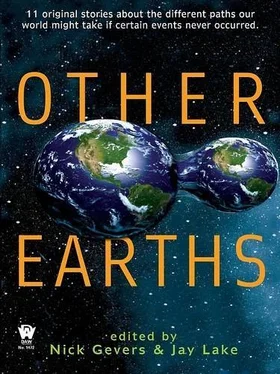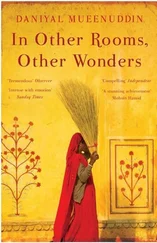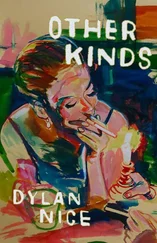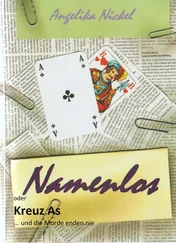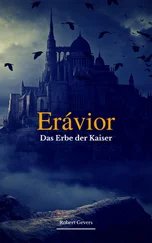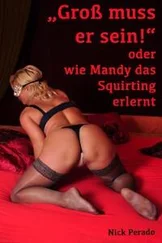Nick Gevers - Other Earths
Здесь есть возможность читать онлайн «Nick Gevers - Other Earths» весь текст электронной книги совершенно бесплатно (целиком полную версию без сокращений). В некоторых случаях можно слушать аудио, скачать через торрент в формате fb2 и присутствует краткое содержание. Жанр: Фантастика и фэнтези, на английском языке. Описание произведения, (предисловие) а так же отзывы посетителей доступны на портале библиотеки ЛибКат.
- Название:Other Earths
- Автор:
- Жанр:
- Год:неизвестен
- ISBN:нет данных
- Рейтинг книги:3 / 5. Голосов: 1
-
Избранное:Добавить в избранное
- Отзывы:
-
Ваша оценка:
- 60
- 1
- 2
- 3
- 4
- 5
Other Earths: краткое содержание, описание и аннотация
Предлагаем к чтению аннотацию, описание, краткое содержание или предисловие (зависит от того, что написал сам автор книги «Other Earths»). Если вы не нашли необходимую информацию о книге — напишите в комментариях, мы постараемся отыскать её.
Other Earths — читать онлайн бесплатно полную книгу (весь текст) целиком
Ниже представлен текст книги, разбитый по страницам. Система сохранения места последней прочитанной страницы, позволяет с удобством читать онлайн бесплатно книгу «Other Earths», без необходимости каждый раз заново искать на чём Вы остановились. Поставьте закладку, и сможете в любой момент перейти на страницу, на которой закончили чтение.
Интервал:
Закладка:
“Suddenly I was released, flung a little distance onto the stone ground. I saw nothing, smelled nothing, heard nothing, while at the same time I did not dare to move, because I could not guess how far I cowered from the edge of the precipice, or even which direction it lay. I crouched as if at the bottom of my own grave. I raised my face up to the vault above me, imagining at some moment I might hear the strains of a silver flute, an air or melody from the Isle of Man, guiding me upward, always upward into the light of day.”
In the big house on the Rue de Dryades, Lucien’s lonely and brokenhearted sister might have wiped away a tear.
And though desperate to leave the house of Monsieur and Madame Mercier, still she might not have married at her first opportunity an American lawyer with whom she did not even share a language. Their daughter, Justine Lockett, would not have died in prison waiting for trial after she’d been arrested carrying letters and supplies through the Union lines at Petersburg. A widow, she would not have left young children, one of whom, my great-grandmother, would not have gone north to Virginia to live with her father’s family. She would not have married William R. McKenney, a congressman and judge. Her granddaughter would not have met my father, who himself would never have existed for different but related reasons. Sixty years later, a diminutive universe of speculation would have been snuffed out.
DOG-EARED PAPERBACK OF MY LIFE
Lucius Shepard
My name, Thomas Cradle, is not the most common of names, yet when I chanced upon a book written by another Thomas Cradle while looking up my work on Amazon (a pastime to which I, like many authors, am frequently given), I thought little of it, and my overriding reaction was one of concern that this new and unknown Cradle might prove the superior of the known. I became even more concerned when I learned that the book, The Tea Forest , was a contemporary fantasy, this being the genre into which my own books were slotted. Published in 2002, it was ranked 1,478,040 in Amazon sales, a fact that eased my fears somewhat. According to the reader reviews (nine of them in sum, all five stars), the book was a cult item, partly due to its quality and partly because the author had disappeared in Cambodia not long after its publication. I found it odd that I hadn’t heard of Cradle and his novel before; out of curiosity, I ordered a used copy and put the incident from mind.
The book arrived ten days later, while I was proofing my new novel, working on a screenplay based on my third novel, for which I was being paid a small fortune, and negotiating to buy a home in the Florida Keys, a property to which some of the screenplay money would be applied. The package lay on my desk unopened for several weeks, buried under papers. By the time I got around to opening it, I had forgotten what it was I ordered. My copy of the The Tea Forest turned out to be a dog-eared trade paperback, the pages crimped and highlighted in yellow marker throughout, rife with marginalia. On the cover, framed by green borders, was a murky oil painting depicting a misted swamp with an almost indistinguishable male figure slogging though waist-deep water. I looked on the spine. The publisher was Random House, also my publisher. That made it doubly odd that I hadn’t heard of the book. What the hell, I asked myself, were they doing publishing two Thomas Cradles in the same genre? And why hadn’t my editor or agent made me aware of this second Cradle?
I turned the book over and glanced at the tiny author photo, which showed a bearded, unkempt man glaring with apparent contempt at the camera. I skimmed the blurbs, the usual glowing overstatement, and read the bio:
“Thomas Cradle was born in Carboro, North Carolina in 1968. He attended the University of Virginia for two years before dropping out and has traveled widely in Asia, working as a teacher of English and martial arts. He currently lives in Phnom Penh. The Tea Forest is his first novel.”
A crawly sensation moved down my neck and spread to my shoulders. Not only did Cradle and I share a name, we had been born in the same town in the same year and had attended the same university (though I had graduated). I’d also trained in Muay Thai and Shotokan karate during high school—if not for a herniated disc, I might have pursued these interests. I had a closer look at the author photo. Lose the beard, shorten the hair, drop twenty-five pounds and six years, and he might have been my twin. The contemptuous glare alone should have made the likeness apparent.
Someone, I told myself, was playing a practical joke, someone who knew me well enough to predict my reactions. When I opened the book, something would pop out or a bad smell would be released …or perhaps it would be a good-natured joke. Kim, my girlfriend, had the wherewithal to doctor an old photograph and dummy up a fake book, but I would not have thought she possessed the requisite whimsy. I dipped into the first chapter, expecting the punchline would be revealed in the text; but after five chapters I recognized that the book could not be the instrument of a prank, and my feeling of unease returned.
The novel documented a trip down the Mekong River taken by four chance acquaintances, beginning in Stung Treng on the Cambodian-Lao border, where the four had purchased a used fishing boat, to Dong Thap Province in the extreme south of Vietnam. It was an unfinished journey fraught with misadventure and illness, infused with a noirish atmosphere of low-level criminality, and culminated with a meditation on suicide that may well have foreshadowed the author’s fate.
Judging by the wealth and authenticity of the background detail and by the precisely nuanced record of the first-person narrator’s emotional and mental life, the novel was thinly disguised autobiography; and the configuration of the narrator’s thoughts and perceptions seemed familiar, as did the style in which the novel was written: It was my style. Not the style in which I currently wrote, but the style I had demonstrated at the start of my career, prior to being told by an editor that long, elliptical sentences and dense prose would be an impediment to sales (she counseled the use of “short sentences, less navel-gazing, more plot,” advice I took to heart). Cradle Two’s novel was no mere pastiche; it was that old style perfected, carried off with greater expertise than I had ever displayed. It was as if he had become the writer I had chosen not to be.
I went to Amazon again, intending to have another look at the webpage devoted to The Tea Forest and perhaps find the author’s contact information; but I could not locate the page, and there was no evidence anywhere on the Internet of a second Thomas Cradle or his novel. I tried dozens of searches, all to no avail. I emailed the seller, Overdog Books, asking for any information they might have on the author; they denied having sold me the book. I sent them a scan of the packing slip, along with a note that accused them of being in collusion with one of my enemies, most likely another writer who, envious of my success, was mocking me. They did not respond. I riffled through the pages of the novel, half-expecting it to dematerialize along with the proof of its existence. I had often made the comment that if ever I were presented with incontrovertible evidence of the fantastic, I would quit writing and become a priest. Though I was not yet prepared to don the cassock, the book in my hands seemed evidence of the kind I had demanded.
The narrative of the The Tea Forest was episodic, heavy on the descriptive passages, many of them violent or explicitly sexual; and these episodes were strung together on a flimsy plotline that essentially consisted of a series of revelations, all leading the narrator (TC by name, thereby firmly establishing that Cradle Two had not overstrained his imagination during this portion of the creative process) to conclude that our universe and those adjoining it were interpenetrating. He likened this circumstance to countless strips of wet rice paper hung side by side in a circle and blown together by breezes that issued from every quarter of the compass, allowing even strips on opposite points of the circle to stick to each other for a moment and, in some instances, for much longer; thus, he concluded, we commonly spent portions of each day in places far stranger than we were aware (although the universes appeared virtually identical). This, he declared, explained why people in rural circumstances experienced paranormal events more often than urban dwellers: They were likely to notice unusual events, whereas city folk might mistake a ghost for a new form of advertising, or attribute the sighting of an enormous shadow in the Hudson River to chemicals in the air, or pay no attention to the fact that household objects were disappearing around them. It also might explain, I realized, why I was no longer able to unearth any record of the novel.
Читать дальшеИнтервал:
Закладка:
Похожие книги на «Other Earths»
Представляем Вашему вниманию похожие книги на «Other Earths» списком для выбора. Мы отобрали схожую по названию и смыслу литературу в надежде предоставить читателям больше вариантов отыскать новые, интересные, ещё непрочитанные произведения.
Обсуждение, отзывы о книге «Other Earths» и просто собственные мнения читателей. Оставьте ваши комментарии, напишите, что Вы думаете о произведении, его смысле или главных героях. Укажите что конкретно понравилось, а что нет, и почему Вы так считаете.
